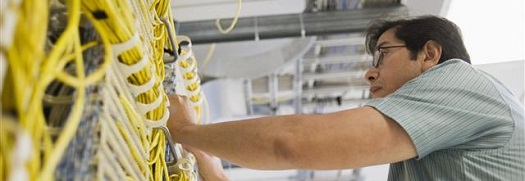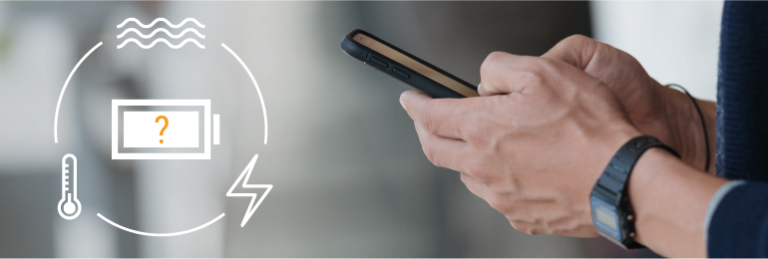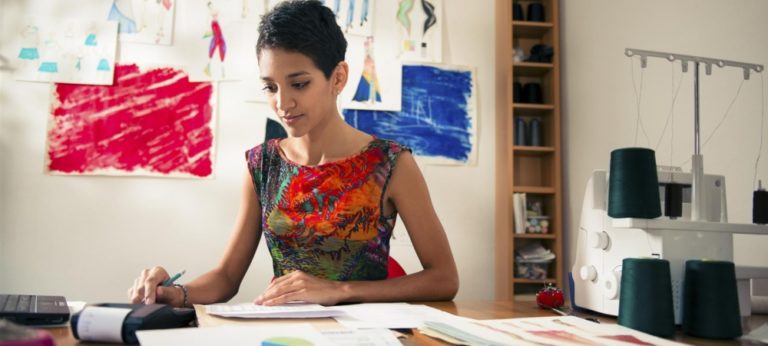By Antonietta Grasso
(From the editor: This article was originally published on Wired’s Innovation Insights blog. )
During the next few decades (or maybe sooner), the notion of work and whether it is handled by a human or a virtual being will hinge on predictability. As they are starting to do today, machines will manage the routine while humans take on the unpredictable – tasks that require creativity, problem solving and flexibility.
That’s not to say that the role of computers will not grow and handle more sophisticated processes. Even today, machines “learn” to carry out tasks we could hardly imagine 20 years ago. Did a DJ just pick your favorite song, or was it an algorithm?
Statistical Patterns in Routine Tasks
Using statistical patterns in data, computers can “learn” to improve the efficiency of many different work processes – such as customer care and toll collection on the highways. One day soon, computers even may handle routine medical diagnosis.
But as we deploy computers to make our world more efficient, human work will take on more of a “problem solving” role, overseeing processes and coming to the rescue when things go awry. As computers enable massive optimization, the ability to accommodate error shrinks, and this can lead to crisis – in work and in society.
So instead of dividing up work between computers and humans, I expect to see a world where humans and machines work together to tackle problems at lightning speed. This will require multiple points of view in a way that is not always expected or accepted today. To problem solve “on the fly,” small teams will come together to merge what machines can do with the capacity of human imagination.
When I was a kid, I remember my mother, an engineer who specialized in machine learning, talking about how computers already were exceeding human capabilities in many areas. Sitting at our dining table, she predicted many things that today we take for granted – searching the globe for the best price on a product; computers that beat humans at chess and machines that can cook! As a kid, the picture she painted of the future was puzzling. Automation was considered “good” but there was little discussion about how human capabilities would fit into this world of the future.
Today, I work on this question every day. As my mother predicted, information technology has made great advances possible. It has automated tasks with low added value for humans, such as manufacturing and data entry. It also has enabled previously unknown levels of efficiency and optimization, with systems that are able to continuously learn how to improve themselves.
But humans are still a very essential part of the process. Think about delivering services to a client. Most customer challenges are routine, but humans play a very important role in addressing new issues, solving them the first time they appear and then consolidating the process into the system.
Subscribe to Simplify Work and receive email updates when we publish a new article.
Managing the unpredictable is where human work gets the most interesting, and that’s the future we’re moving into – along with our machine teammates.
 Antonietta Grasso is a senior scientist and Work Practice area manager at the Xerox Research Centre Europe where she explores how the use of ethnographies can influence technology innovation. Her work spans a number of different of topics including new forms of work organizations, the paper digital divide, the use of social and web 2.0 tools in enterprises and motivational systems and touches a variety of domains such as customer care, knowledge work, public administration and transportation. She has been program manager for the Xerox Innovation Group’s Big Ideas program from its creation up to mid 2013.
Antonietta Grasso is a senior scientist and Work Practice area manager at the Xerox Research Centre Europe where she explores how the use of ethnographies can influence technology innovation. Her work spans a number of different of topics including new forms of work organizations, the paper digital divide, the use of social and web 2.0 tools in enterprises and motivational systems and touches a variety of domains such as customer care, knowledge work, public administration and transportation. She has been program manager for the Xerox Innovation Group’s Big Ideas program from its creation up to mid 2013.
We Asked Xerox people:
By 2035, will computers equal or exceed human ability to …
In the office of the future, what will computers do best? Which tasks will always need a human’s touch?
What would a world run solely by computers look like? It would be a lot less creative, according to most people who responded to our survey. “Computers can only answer questions; they cannot ask them. Innovation through the trial and error of our ‘what if?’ imaginations (and often random luck) are where humans excel.” Computers will never have what it takes to offer “humor, music that touches our hearts, and dreaming. These things need living, breathing hearts at the center… All animals – not just humans – are capable of these three things. A computer can pretend to do them, but only if a person tells it to.”
Furthermore, are we “selling the human mind short if we think creativity will come from computers?”
That doesn’t mean we can’t learn a thing or two from our machine friends. “Sometimes we are the ones who are stuck in one point of view and can’t see the forest for the trees… A computer can be exactly what the doctor ordered to find an unconventional path to a solution, since they aren’t bound by the same considerations that we are.” After all, “computers already have exceeded human ability to interpret data and make decisions [in areas such as] electronic stock trading.”
But collaboration will always remain part of the human realm. Even “two computers looking at the same data with different algorithms will not yet be able to collaborate with each other to reach a new conclusion that neither of them were programmed to reach.” People “will be required for conflict resolution, whether it is human-human, human-machine or machine-machine.”
Perhaps one person said it best: “The office party will still require humans. However, computers will probably handle the football pool better.”




